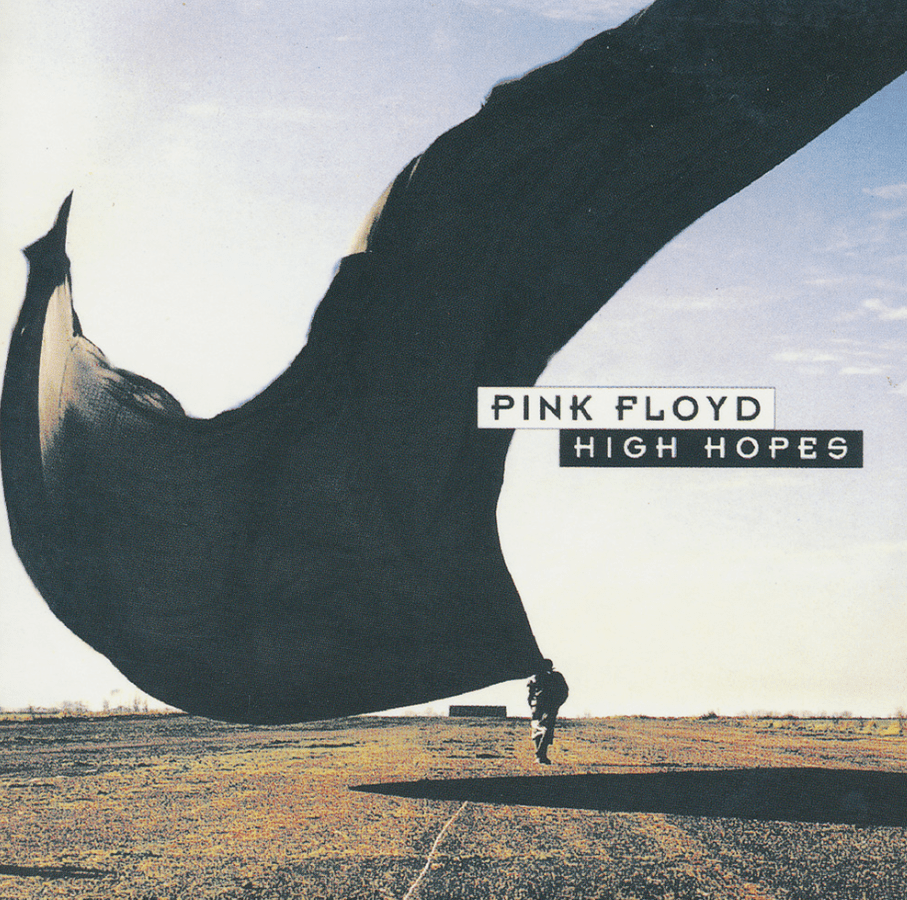⭐⭐⭐
Rating: 3 out of 5.
Closing out the second album without Roger Waters’ involvement is no small order. David Gilmour took the reins of leadership in Pink Floyd following the bassist’s departure and had much to prove. While his post-Waters work with the group does not have the influential sway of the songs that preceded it, there were moments of interest to be heard. High Hopes, the final song featured on The Division Bell, is the sort of guitar epic that Gilmour could write easily but rarely fit into the meaning of the band and the album at hand. Not as well as Waters could. That is not to say Gilmour fails, though. Returning to High Hopes is a fascinating experience, one that is much more enjoyable when the dead weight of The Division Well is hacked off it. Not all the songs, just the midsection of that album. High Hopes struggles to breathe on the 1994 effort because Keep Talking and Lost for Words preceding it are simply better.
High Hopes is Gilmour at his instrumental extreme. A man whose strength with a guitar makes up for the weaknesses of his writing. That is not to say Gilmour is a poor lyricist. He has some excellent songs, though most can be found in the latter days of his solo career rather than his work with Pink Floyd. Is it a knock at Waters? The grass being greener on the other, Waters-less side, could be an easy jab at the former frontman on High Hopes. It is not. If it is a reference to Waters, then it is to the days when Gilmour and ex-bandmates Waters and Syd Barrett were friends. High Hopes is a nod to the early years, the literal high hopes of the trio as they began working on Pink Floyd. Though the instrumentals do not make the drift and passage of time clear, it is a very sweet message for Gilmour to feature, especially after the back-and-forth with Waters.
Even without that reflection, which seems set to stay away from nostalgia as Gilmour brings in some strong acoustic guitar solos and the chimes of Cambridge bells, High Hopes stays the course. An unsatisfied hunger is what he hinges this song on, some creative urge which needs his former bandmates. For a song which rounds out the last Pink Floyd album under Gilmour’s leadership, there could not be a more fitting bow to tie around the band’s history. Veteran guitarist Gilmour would tug at that with the meaningless release of The Endless River decades later, but for a time, there was a sincere and solid ending to Pink Floyd as a touring unit. High Hopes may be overwhelmed by its somewhat bloated structure, but it certainly proves to be a fitting end to the band. Some may wish to remember it as such.
Considering what comes before it on The Division Bell, High Hopes is best enjoyed in isolation. A solid instrumental work to close out the album, sure, but it does not stand up well against What Do You Want from Me and Poles Apart earlier on the record. On its own, High Hopes is a tremendous nod to the band’s history and the members who have come and gone. It is overshadowed by the more delicate touch of better songs on the album, but it still marks one of the many staggering instrumental moments from Gilmour. Not his sharpest playing or performing, but still a worthy listen which hits all the right emotional notes as he takes a stroll through the past, through a Cambridge which, like the band, has changed.
Related
